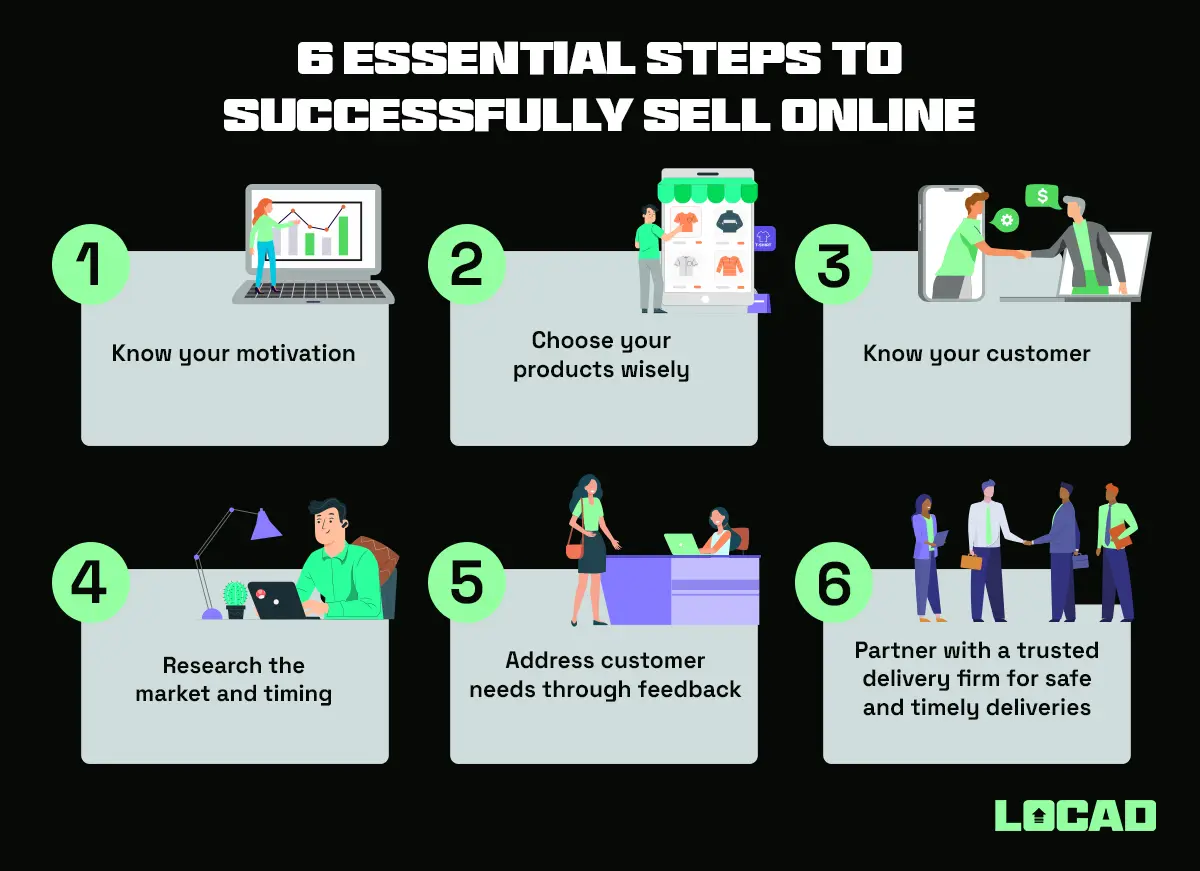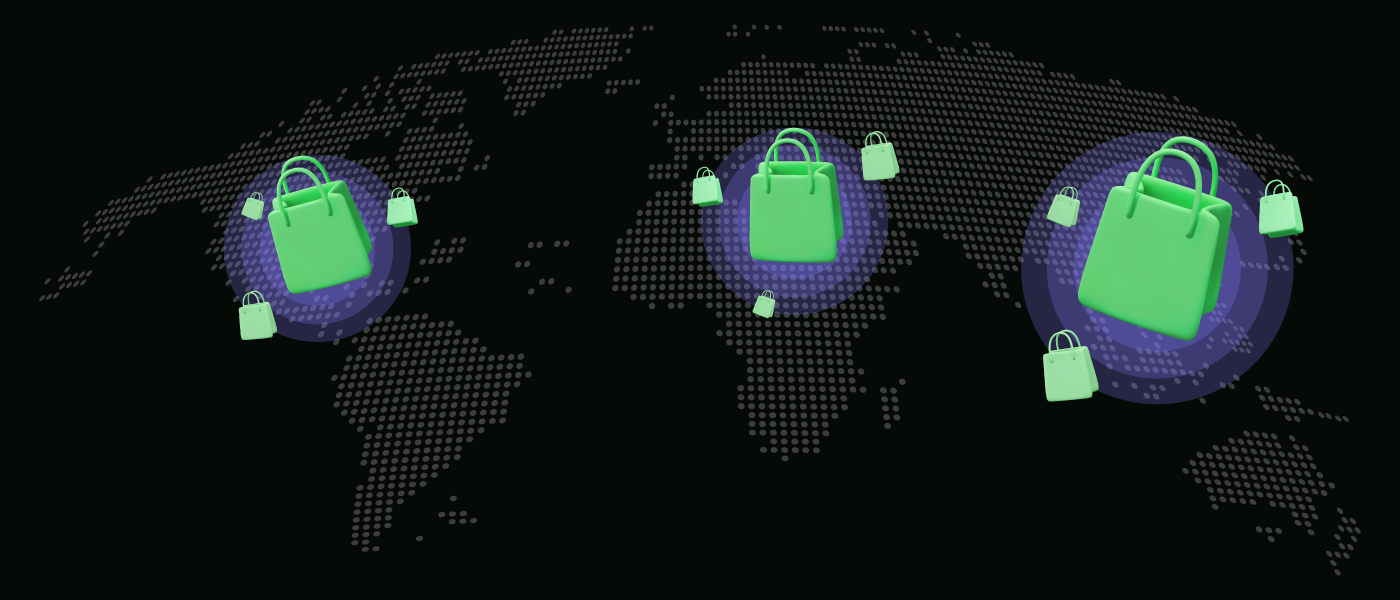Are you thinking of starting an online business in the Philippines? With the increasing popularity of e-commerce platforms in the Philippines, now is the perfect time to take advantage of this growing trend. According to a report by Google and Temasek, the e-commerce industry in Southeast Asia is projected to be worth $200 billion by 2025, and the Philippines is expected to be one of the fastest-growing markets in the region.
One of the main advantages of selling online is convenience. With just a few clicks, customers can easily browse and purchase products from the comfort of their own homes. This has led to a significant increase in online sales, with a study by iPrice Group reporting a 57% growth in e-commerce transactions in the Philippines in 2020.
So, how can you start your own online business in the Philippines? Whether you’re new to online selling or looking to improve your existing business, here are some steps to help you get started and succeed in this competitive market.

6 Essential Steps to Successfully Sell Online
Selling online can be a lucrative venture if done right. Here are 6 essential steps to guide you towards success:
- Know your motivation – Why do you want to sell online? Identify your goals and motivations to help you stay focused and motivated.
- Choose your products wisely – Conduct market research to determine which products are in demand and have the potential to sell well online.
- Know your customer – Determine your target audience and tailor your marketing efforts to them.
- Research the market and timing – Keep yourself updated with market trends and find the best timing to launch your products.
- Address customer needs through feedback – Listen to your customers and their feedback to improve your products and services.
- Partner with a trusted delivery firm for safe and timely deliveries – Work with a reliable delivery service to ensure your products are delivered safely and on time to your customers.

Online Selling Step #1: Ask yourself why you want to sell.
Before you dive into the world of online selling, it’s important to ask yourself why you want to sell. This will not only help you set goals, but it will also give you a clear understanding of your motivation and purpose.
Ask yourself these questions to help clarify your motivation:
- What problem are you solving?
- What unique perspective or value do you bring to the market?
- What personal interests or passions can you incorporate into your business?
- What are your long-term goals for the business?
Once you have answered these questions, you can use this information to create a mission statement that will guide your business decisions and keep you focused on your goals.
How to address this problem:
- Write down your answers to the questions above and create a mission statement that encapsulates your motivation and purpose.
- Make sure your mission statement is specific and unique to your business.
- Use your mission statement as a guiding principle when making business decisions and setting goals.
Online Selling Step #2: What you want to sell?
Now that you have identified your motivation for selling online, it’s time to choose the products that you want to sell. Keep in mind that the products you choose should not only be something that you are interested in, but they should also be profitable.
Here are some things to consider when choosing products:
- Find a product niche that interests you: It’s easier to sell products you are passionate about. This will help you stay motivated and engaged in your business.
- Research product demand: Conduct market research to identify which products are in demand. This will help you choose products with a higher chance of selling and can increase your chances of success.
- Research your competition: Before you start selling a product, research what other businesses are offering in the same niche. Look for opportunities to differentiate yourself and offer something unique.
- Consider profit margins: Choose products that offer a good profit margin. Calculate your expenses, such as the cost of goods, shipping fees, and marketplace fees, and make sure you can still make a profit after deducting these costs from the sale price.
By choosing your products carefully, you can set yourself up for success in the online selling world.
Download our E-commerce Academy Bundle!
Online Selling Step #3: Who is your customer?
Knowing your target audience is crucial to any business, including online selling. You may struggle to effectively market your products and address their needs without understanding your customers.
To define your customer, you must consider factors such as age, gender, income level, location, interests, and shopping behaviour.
One way to understand your customer is by conducting market research. You can start by gathering data from social media platforms, online forums, or survey tools to learn about their preferences, pain points, and behaviour. You can also analyse your competitors’ customer base to gain insights into the market.
Once you better understand your target audience, you can tailor your products, marketing strategies, and customer service to meet their needs. For example, if your target audience is young adults passionate about sustainability, you can offer eco-friendly products or packaging and highlight your sustainable practices in your marketing messages.
Remember that understanding your customer is an ongoing process, and you need to stay updated with the latest trends and preferences to remain relevant and competitive in the market.
Here is the summarisation of how to find whom to sell to:
- Identify your target audience or ideal customer
- Conduct market research to understand their needs and preferences
- Consider factors like age, gender, location, interests, and purchasing power
- Use this information to tailor your product offerings, marketing strategies, and customer service to appeal to your target audience better.
Online Selling Step #4: Where are your suppliers?
When you have a clear idea of what you want to sell, the next step is to find reliable cross border suppliers who can provide you with quality products at a reasonable price. If there’s one thing the property industry can teach any online seller, it’s “location, location, location.” That means knowing where to source your products.
If you’re selling homemade products, you still need to know where to get your raw materials (or ingredients if it’s food). You must do your due diligence on where you will get your products, how to transport them, and the cost that comes with them. This can be challenging, especially if you’re just starting, but there are several ways to find good suppliers:
- Attend trade shows and connect with suppliers in your niche.
- Search for suppliers on online marketplaces like Shopee, Lazada, or AliExpress.
- Check social media platforms like TikTok, Facebook and Instagram for local suppliers.
- Ask for recommendations from fellow entrepreneurs.
Once you’ve found potential suppliers, assessing their reliability and reputation is important. Look for reviews, ratings, and feedback from previous customers to ensure the supplier is trustworthy.
In addition to finding reliable suppliers, it’s also important to consider transportation costs. This includes not just the cost of shipping the products to you but also the cost of delivering the products to your customers.
Make sure to factor in shipping costs when setting the prices for your products. If the shipping costs are too high, looking for local suppliers or adjusting your pricing strategy may be more cost-effective.
Finding reliable suppliers and managing transportation costs is crucial to the success of your online selling business. Take the time to research and choose your suppliers wisely to ensure you’re providing quality products at a fair price to your customers.

Online Selling Step #5: When do you sell?
Now that you have chosen the products you want to sell and have found reliable suppliers, it’s time to research the market and timing. Identifying your target market and understanding their preferences, interests, and purchasing behaviour is essential. Knowing your customers can help you tailor your products, pricing, and marketing strategies to meet their needs and stand out from your competitors.
Market research can help you identify trends, demand, and competition. You can check out online marketplaces, social media, and forums to get insights on what’s currently selling well and what gaps you can fill in the market. Timing is also crucial in online selling.
You should know seasonal trends, holidays, and special occasions that may impact your sales. By being prepared and strategic, you can take advantage of these opportunities and maximise your profits.
To summarise, here are some key steps for researching the market and timing:
- Identify your target market and understand their preferences and purchasing behaviour.
- Check out online marketplaces, social media, and forums to identify trends, demand, and competition.
- Consider seasonal trends, holidays, and special occasions that may impact your sales.
- Be prepared and strategic to take advantage of market opportunities and maximise your profits.
Online Selling Step #6: How do you deliver your products?
A crucial aspect of running an online selling business is ensuring that the items purchased by customers are delivered to them safely and on time. This is where partnering with a reliable delivery firm comes in.
Here are some reasons why choosing the right delivery partner is essential:
- Customer satisfaction: Customers expect their purchases to arrive on time and in good condition. A good delivery partner can ensure that your customers receive their e-commerce orders promptly and in excellent condition, increasing customer satisfaction and loyalty.
- Brand reputation: The delivery experience can significantly impact your brand reputation. A reliable delivery partner can help enhance your brand image by providing a positive delivery experience to your customers.
- Cost-effectiveness: Working with a reliable delivery partner can save you time and money by streamlining your delivery process and reducing the need for in-house delivery personnel and equipment.
- Tracking and transparency: A good delivery partner should provide real-time tracking and updates to customers, ensuring they are always aware of the delivery status of their orders.
When choosing a delivery partner, it’s important to consider factors such as delivery speed, reliability, cost, and customer service. You can also check online reviews or ask for recommendations from other online sellers to help you make an informed decision. Partnering with a trusted delivery firm can help you build a successful and sustainable online selling business.
Starting an online selling business in the Philippines? Follow these six steps for success:
- Know your motivation
- Choose your products wisely
- Know your customer
- Find reliable suppliers and consider transportation costs
- Research the market and timing
- Partner with a trusted delivery firm for safe and timely deliveries.
In addition, it’s important to differentiate your products, ensure their quality, and manage customer feedback to improve and tailor your products to your customers’ needs. Furthermore, you must research the market, stay updated on trends, and use social media and e-commerce platforms to reach potential customers.
Pricing Comparison Tools For E-commerce Sellers
There are a number of pricing comparison tools that e-commerce businesses can use to track the prices of their competitors and ensure that they are offering competitive prices. Here are a few of the most popular pricing comparison tools:
PriceGrabber: PriceGrabber is a popular price comparison tool that allows users to compare the prices of products from a variety of retailers. PriceGrabber also offers a number of features for e-commerce businesses, such as price tracking and competitor analysis.
PriceSpider: PriceSpider is another popular price comparison tool that allows users to compare the prices of products from a variety of retailers. PriceSpider also offers a number of features for e-commerce businesses, such as price alerts and product reviews.
Shopzilla: Shopzilla is a price comparison tool that allows users to compare the prices of products from a variety of retailers. Shopzilla also offers a number of features for e-commerce businesses, such as product listings and marketing tools.
Google Shopping: Google Shopping is a price comparison tool that allows users to compare the prices of products from a variety of retailers. Google Shopping also offers a number of features for e-commerce businesses, such as product listings and ad campaigns.
Amazon Business: Amazon Business is a pricing comparison tool that allows users to compare the prices of products from a variety of retailers. Amazon Business also offers a number of features for e-commerce businesses, such as volume discounts and business accounts.
Ready to try online selling?
Remember, succeeding in online selling takes more than having great products and a user-friendly website. By following the steps we’ve outlined and partnering with a trusted logistics and fulfillment provider, you can stay ahead of the competition and grow your online business in Southeast Asia.
Delivery is one of the most crucial aspects of an online selling business. After all, you wouldn’t want your customers to receive their orders late or, worse, damaged. This is where Locad, a logistics and fulfillment engine for e-commerce companies in the Southeast Asia market, can help you.
Locad can provide a wide range of delivery options that suit your needs, from same-day shipping and next-day delivery to scheduled deliveries and pick-up points. Locad also offers a real-time tracking system so you and your customers can monitor the status of your deliveries. With Locad, you can ensure that your deliveries are safe, timely, and hassle-free, giving your customers the best online shopping experience possible.
FAQ
What products can I sell online in the Philippines?
You can sell almost any product online in the Philippines, from everyday items to more specialised ones. The key is choosing products with market demand and that you have access to reliable suppliers.
Do I need experience selling online to start my e-commerce business?
No, you do not need any prior experience selling online to start your e-commerce business. However, it is important to educate yourself on the basics of online selling, including knowing your motivation, choosing your products wisely, finding reliable suppliers, researching the market and timing, addressing customer needs, and partnering with a trusted logistics and fulfillment provider.
How can I find reliable suppliers for my online store?
There are various ways to find reliable suppliers for your online store, such as attending trade shows, browsing online marketplaces, asking for recommendations from industry peers, and conducting online research. Establishing a good relationship with your suppliers is important to ensure a steady supply of products and a mutually beneficial partnership.
What is the importance of addressing customer needs through feedback?
Addressing customer needs through feedback is crucial for the success of any e-commerce business. By listening to customer feedback and making necessary adjustments to your product offerings, pricing, and customer service, you can improve the overall customer experience and retain customers for the long term.
How can a logistics and fulfillment provider like Locad help my e-commerce business in the Southeast Asia market?
Locad can help your e-commerce business in the Southeast Asia market by providing a reliable logistics and fulfillment engine, enabling you to focus on growing your business while leaving the logistics and fulfillment operations to the experts. With Locad’s advanced technology and fulfillment centres strategically located across the region, you can ensure safe and timely deliveries to your customers, ultimately leading to a positive customer experience and increased customer loyalty.











